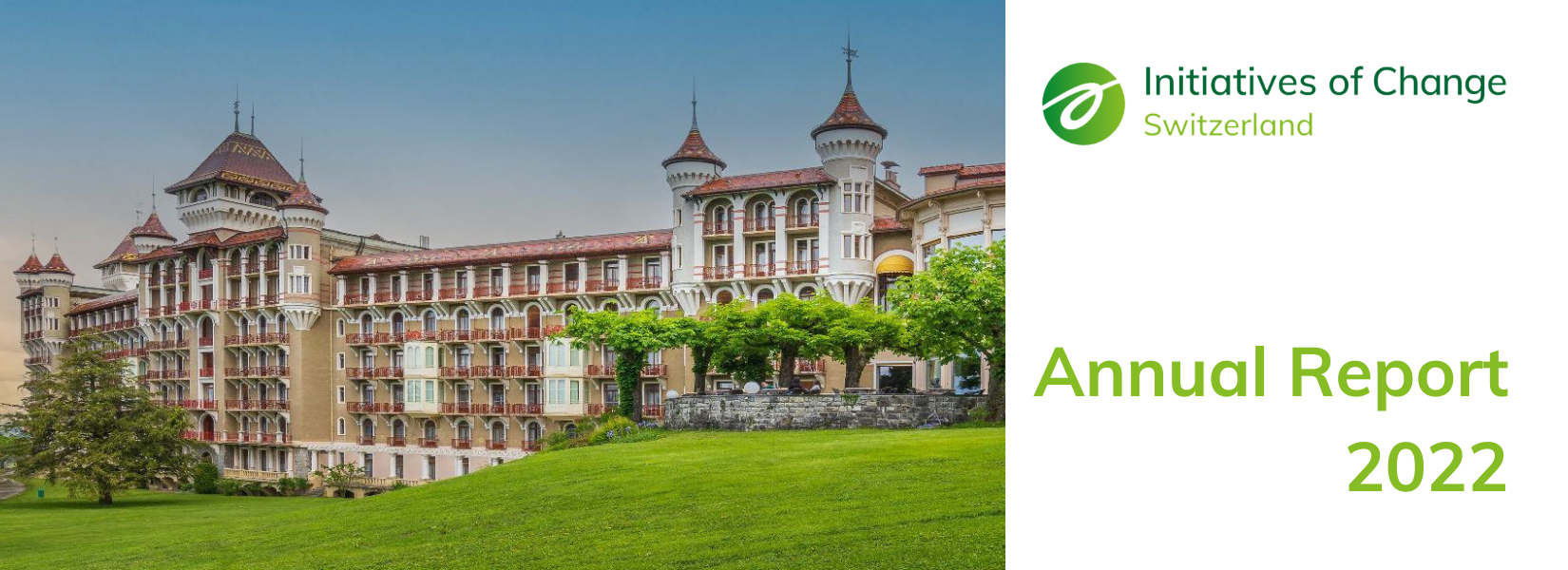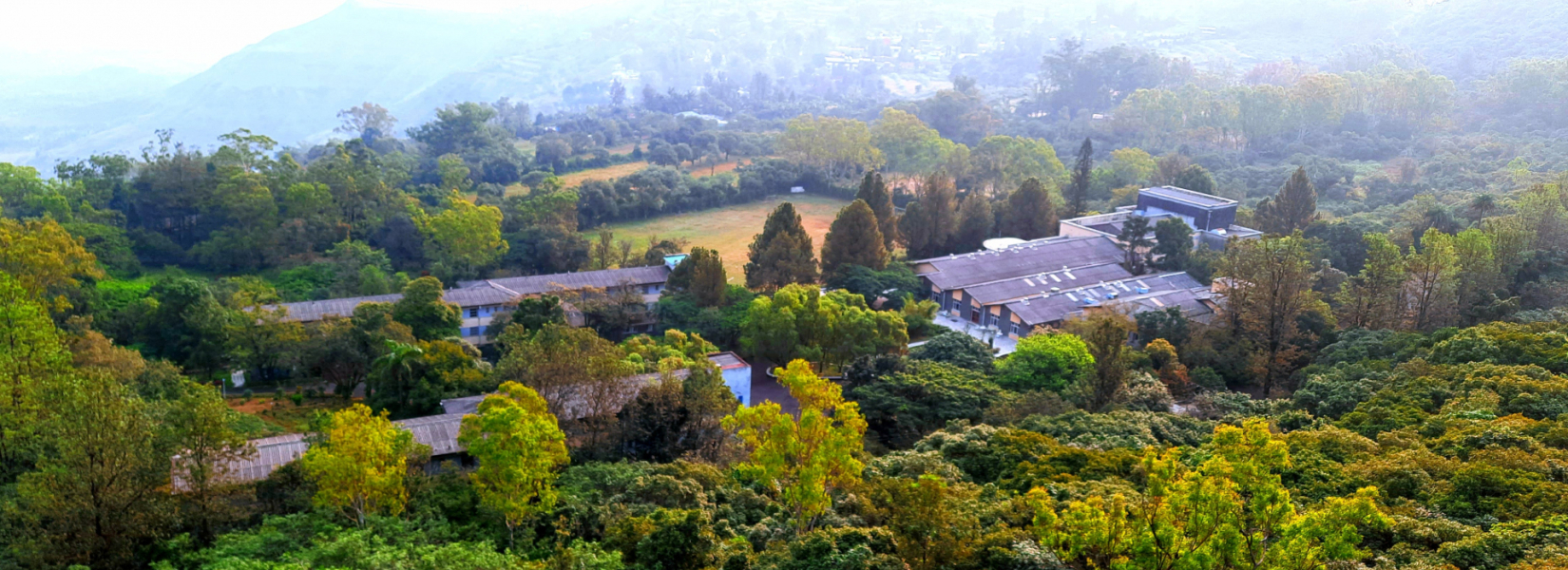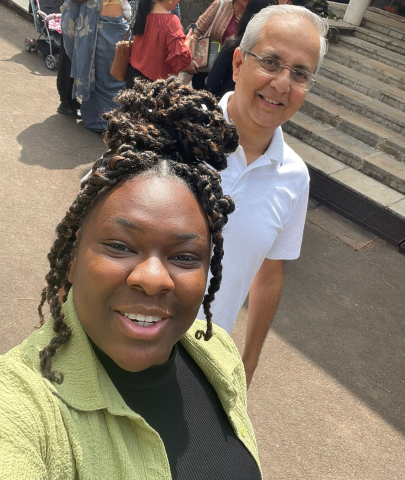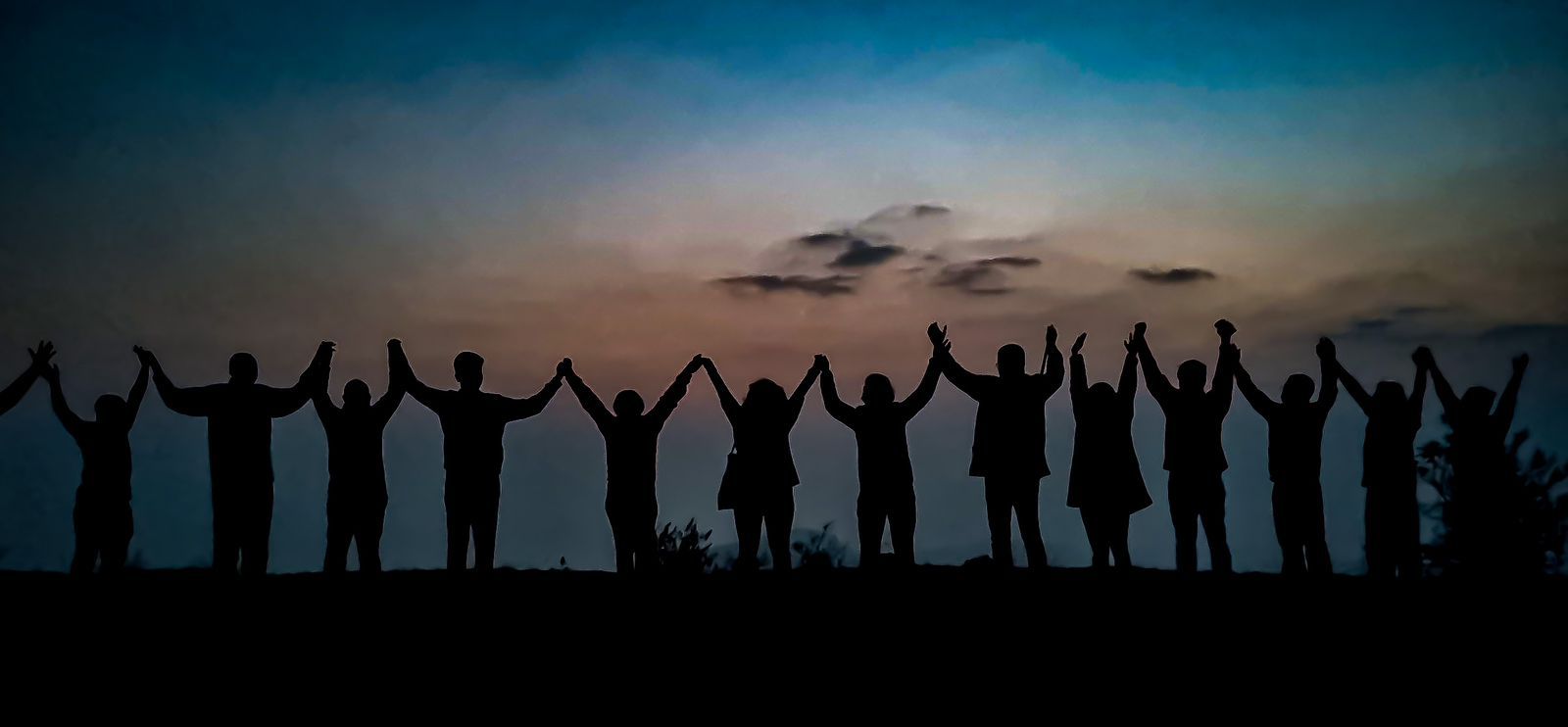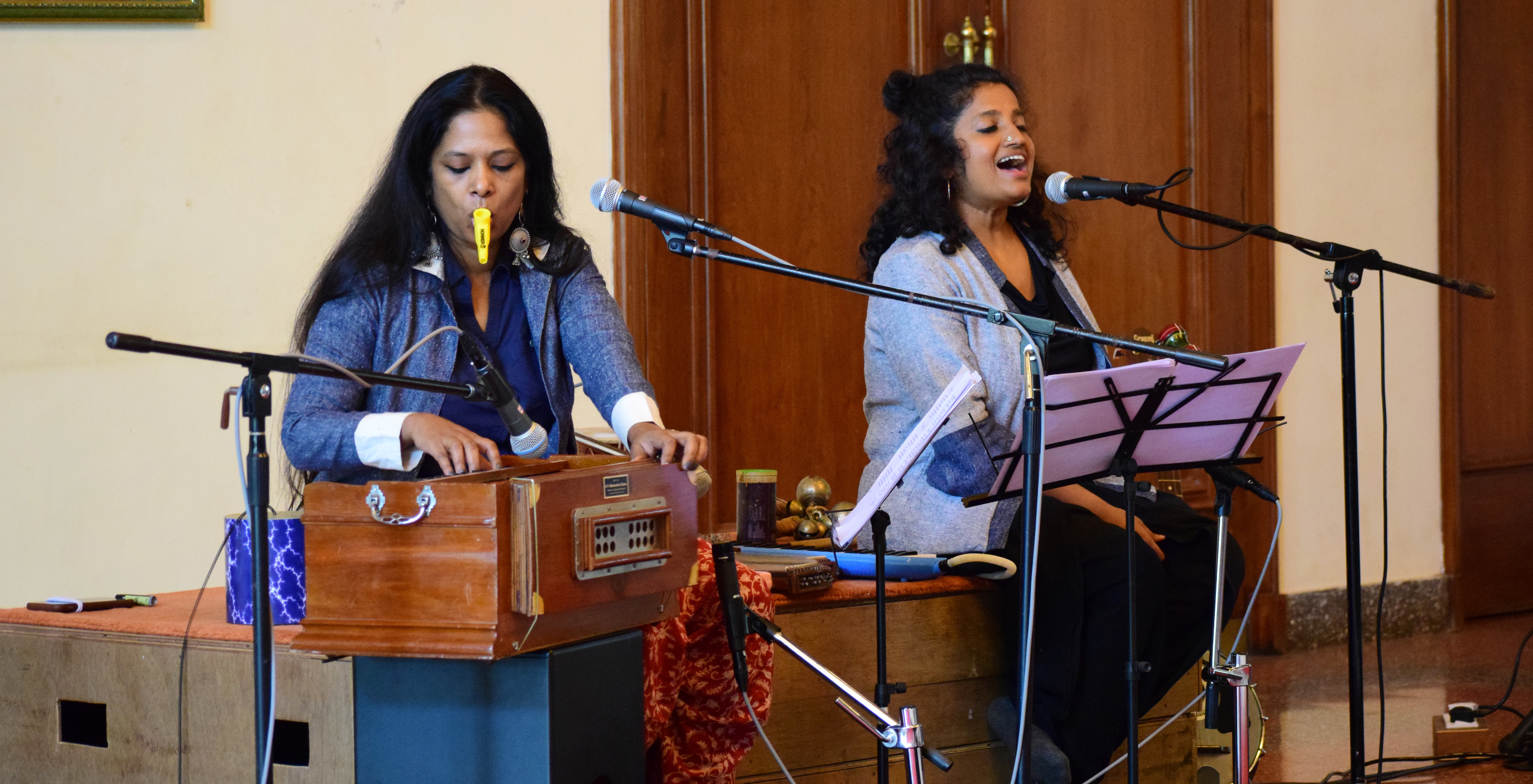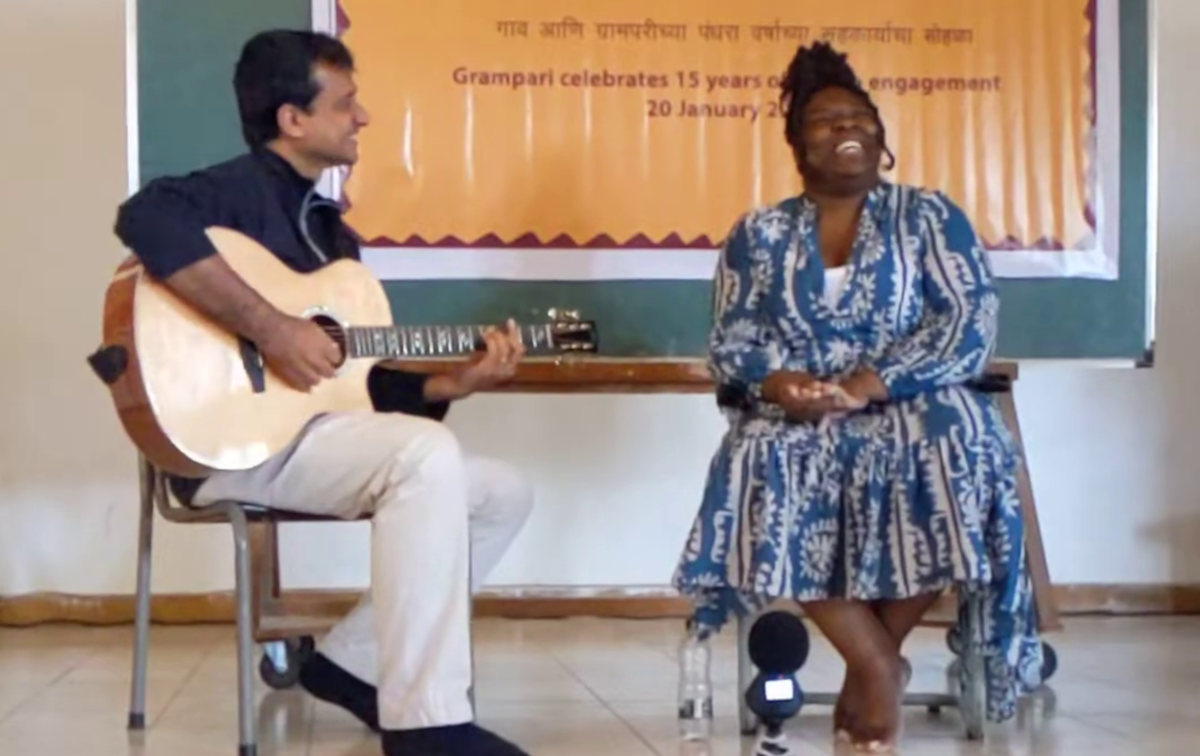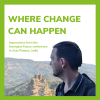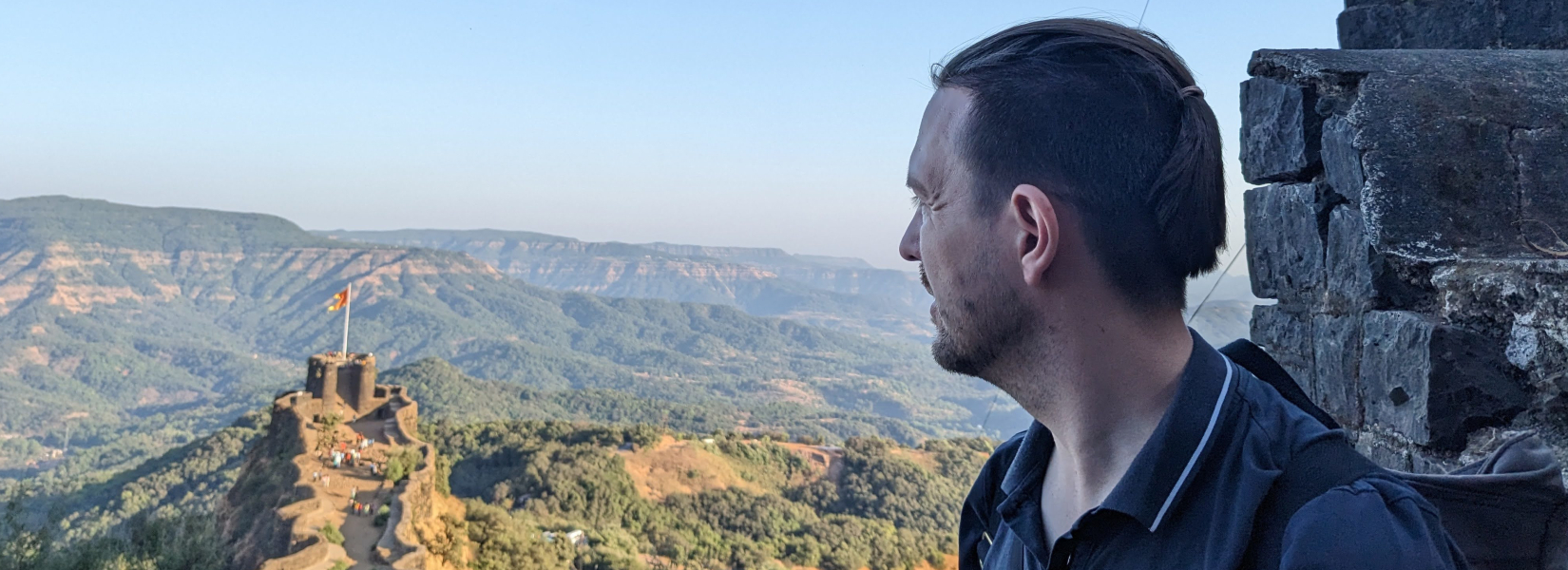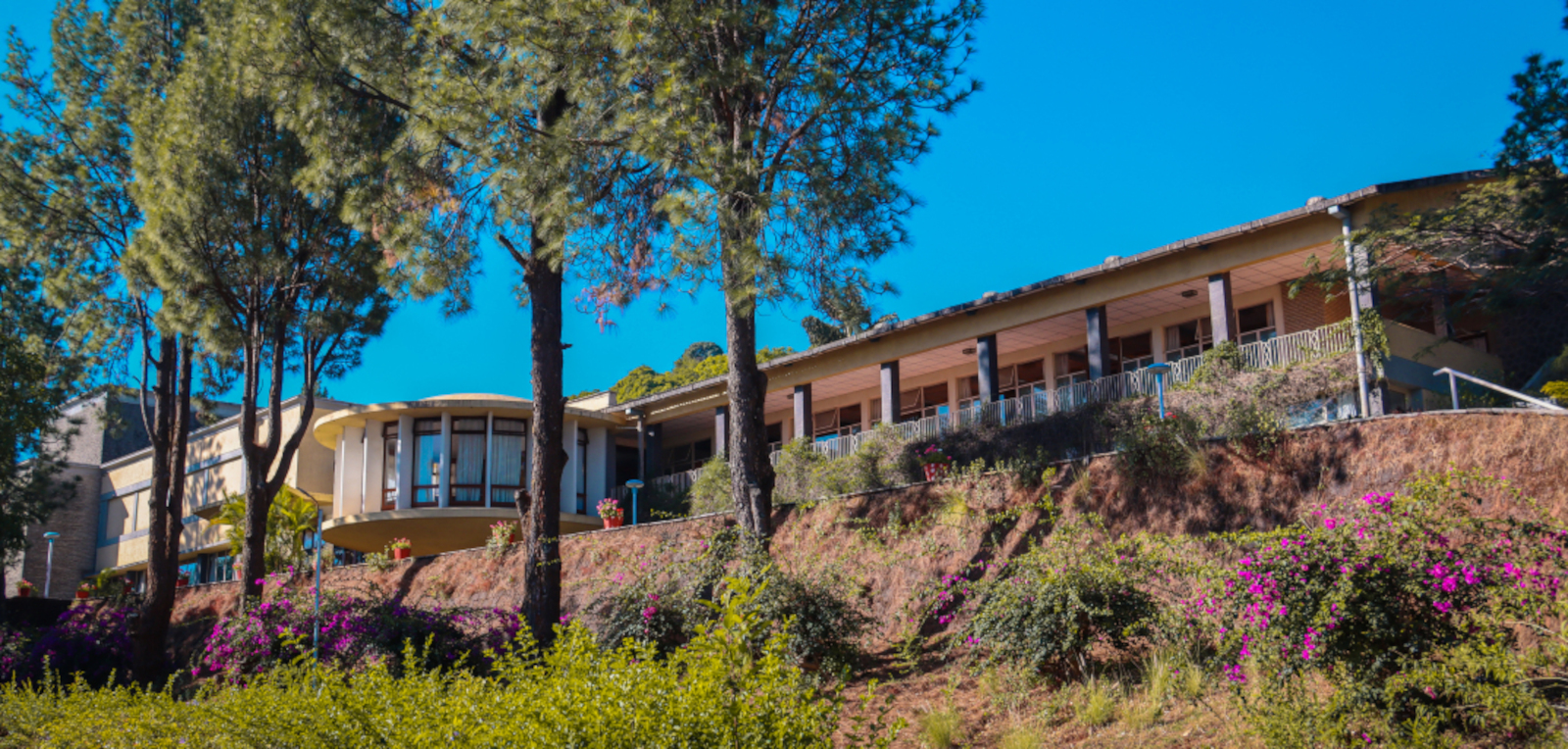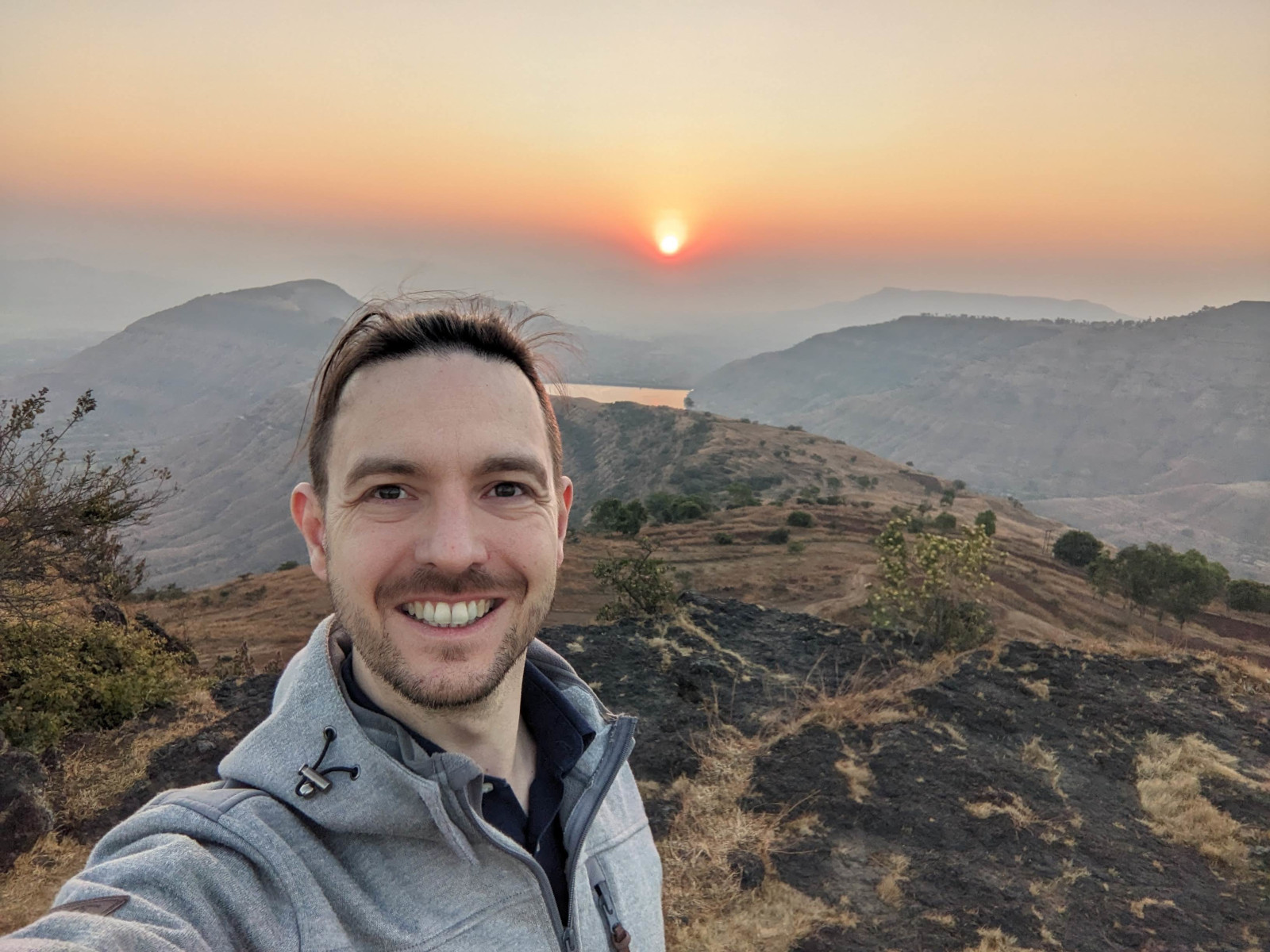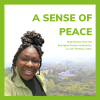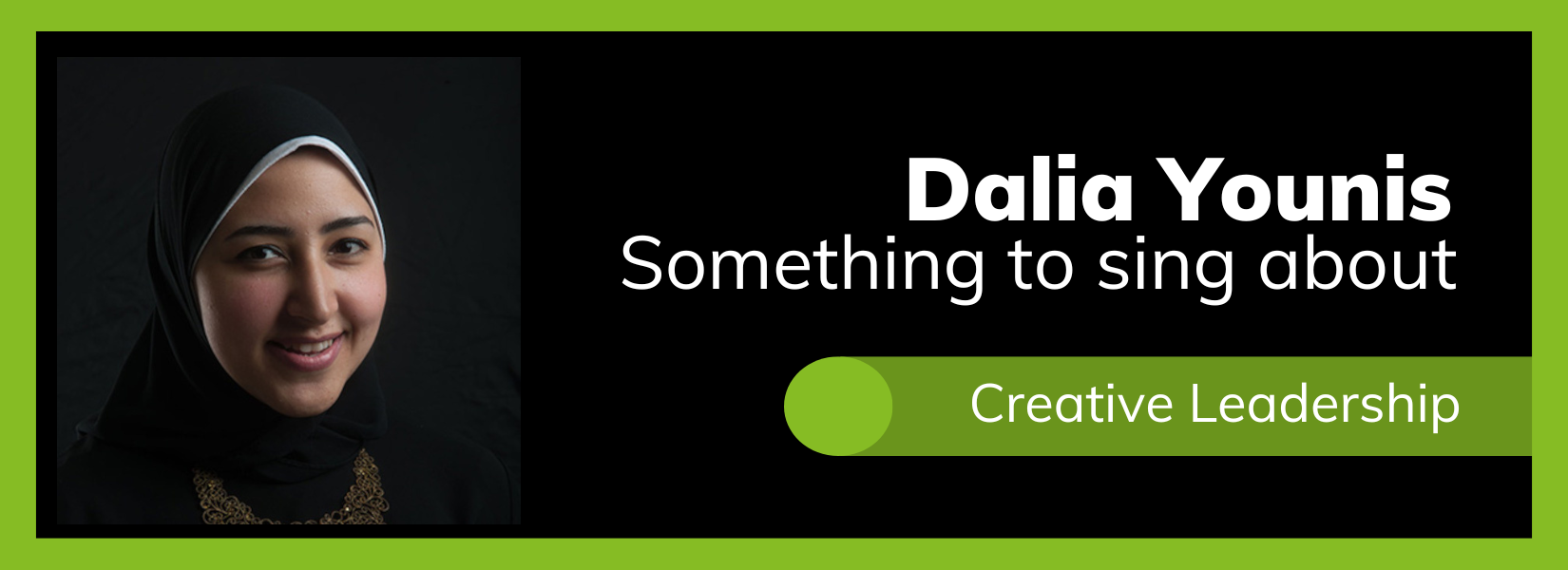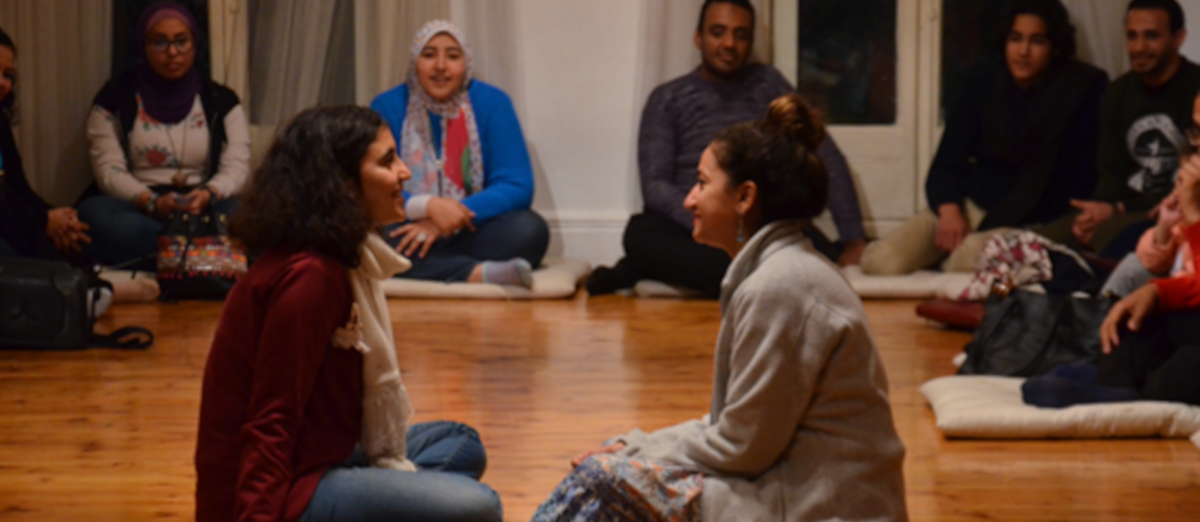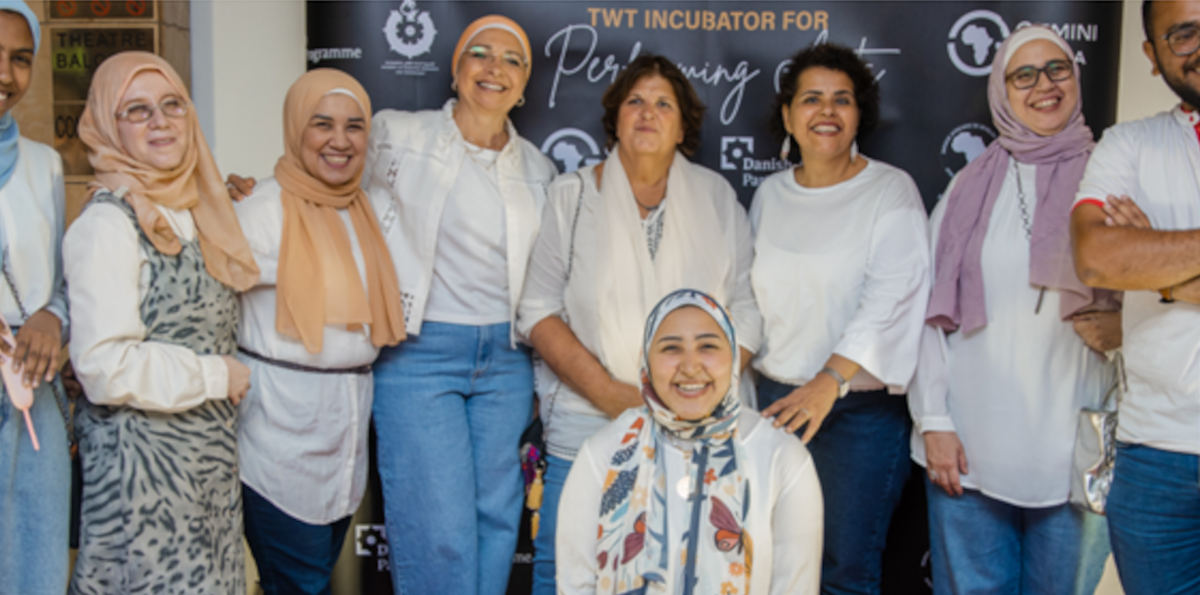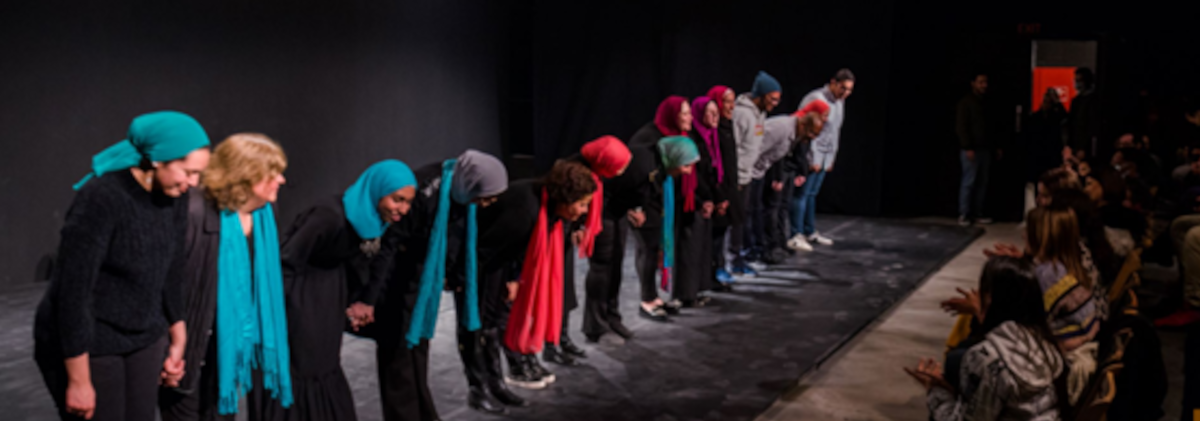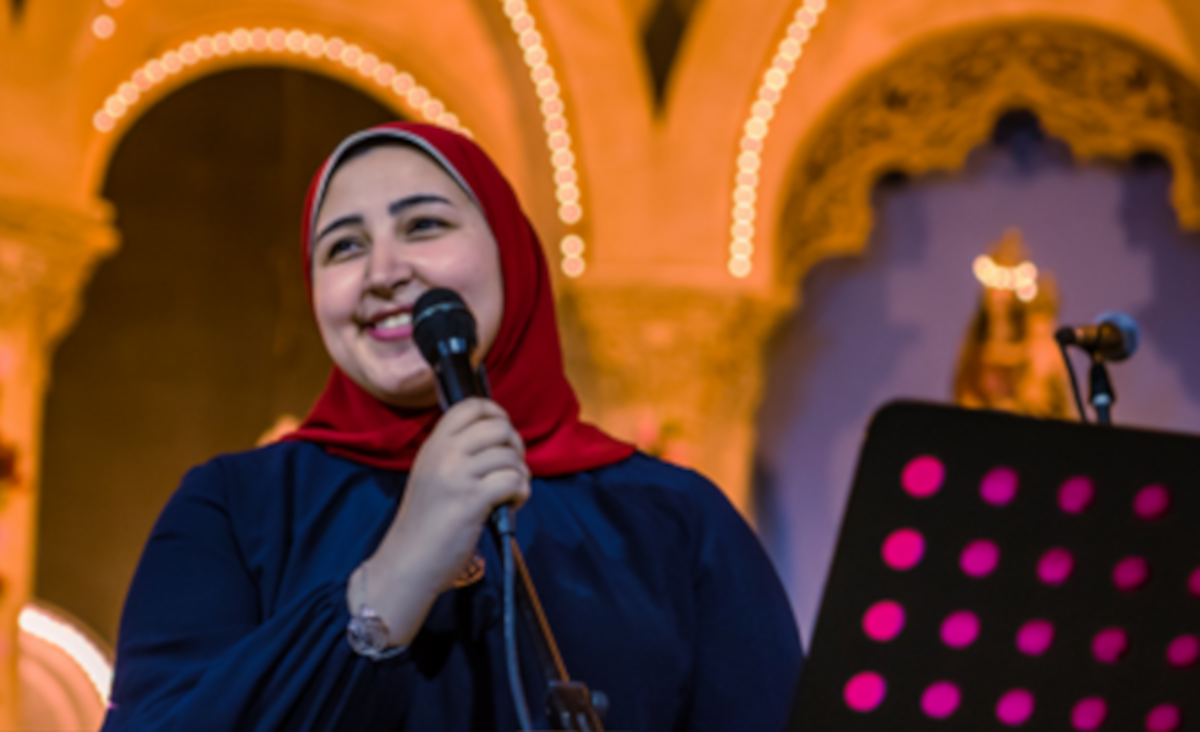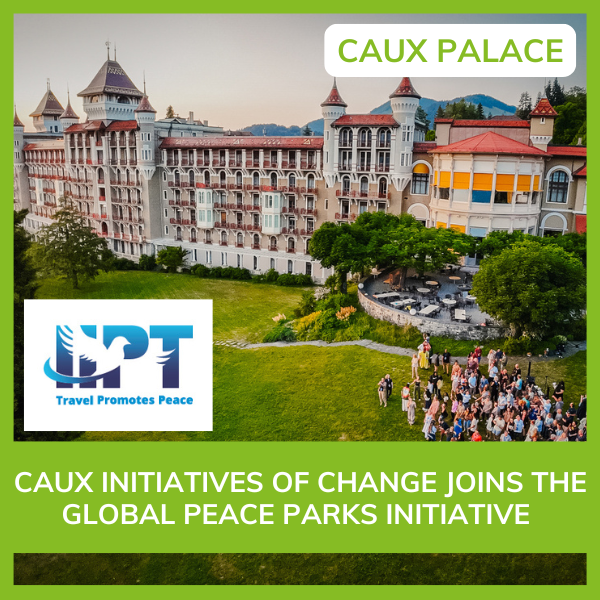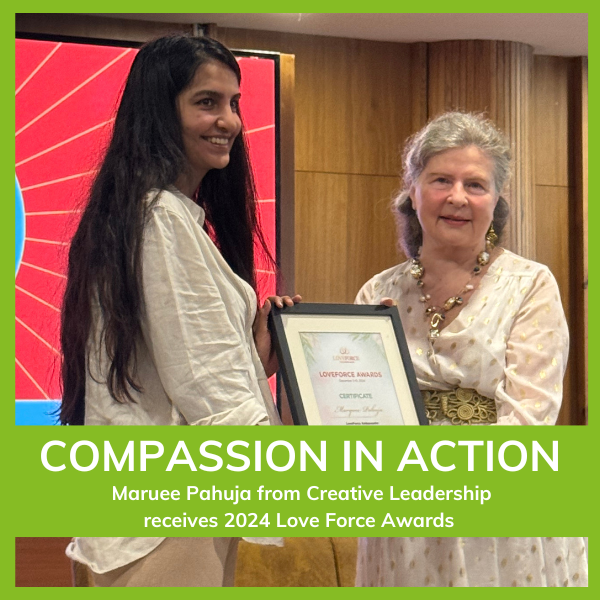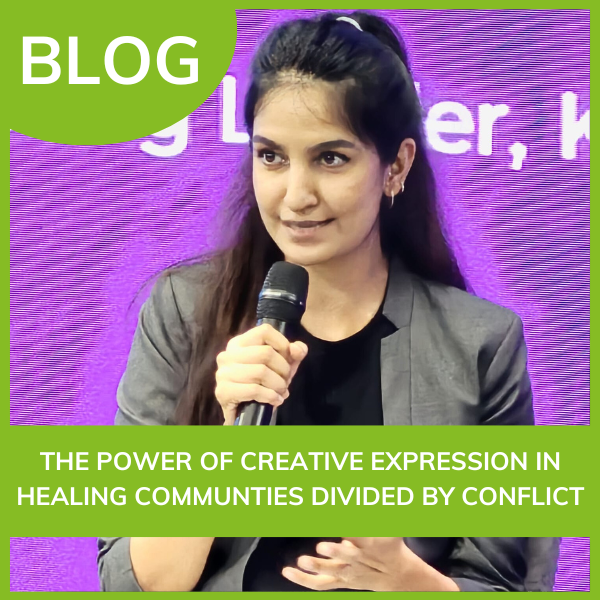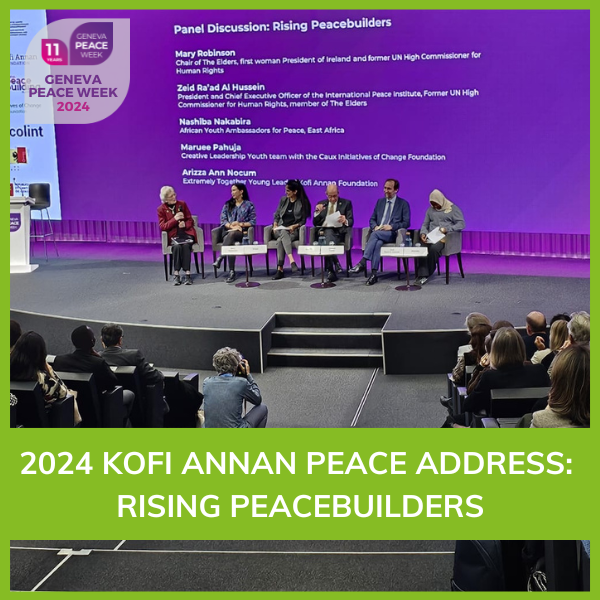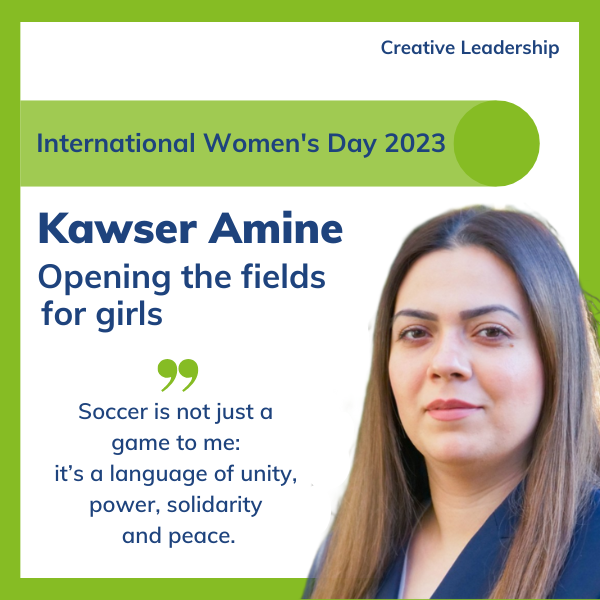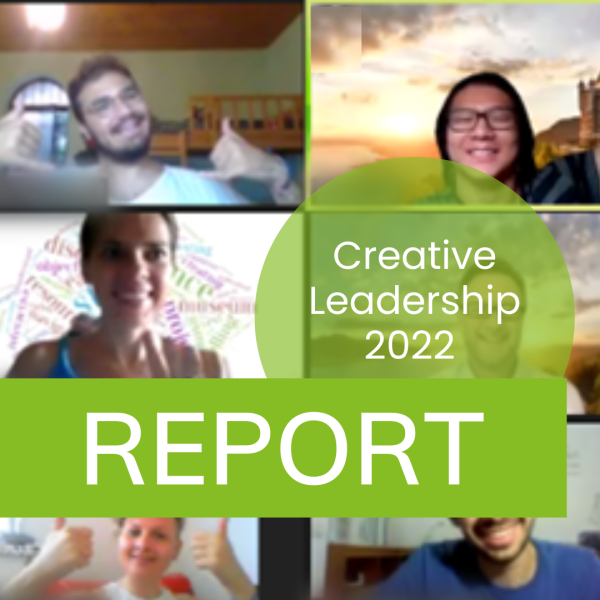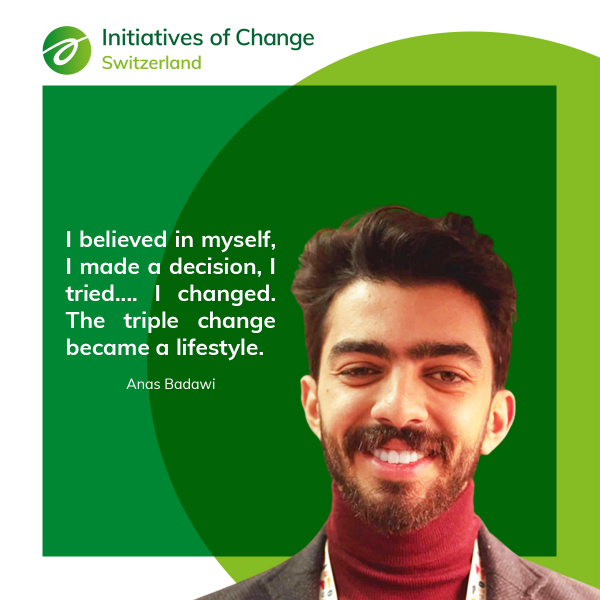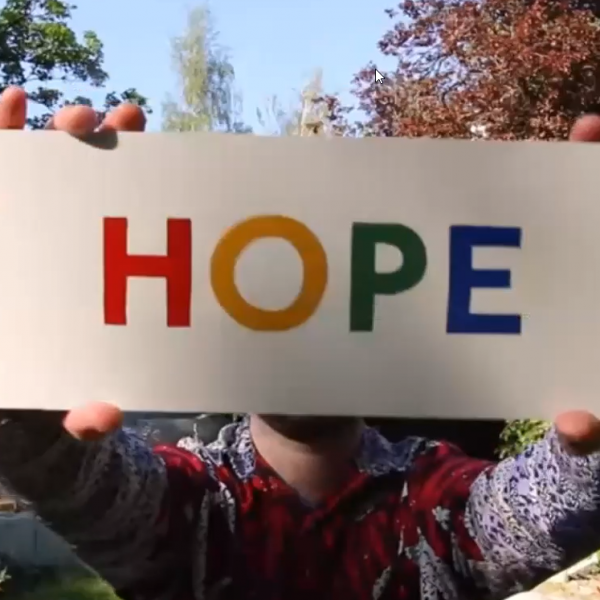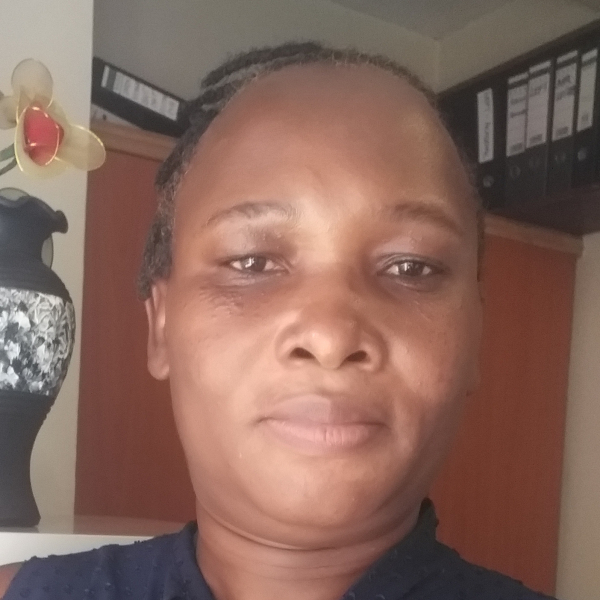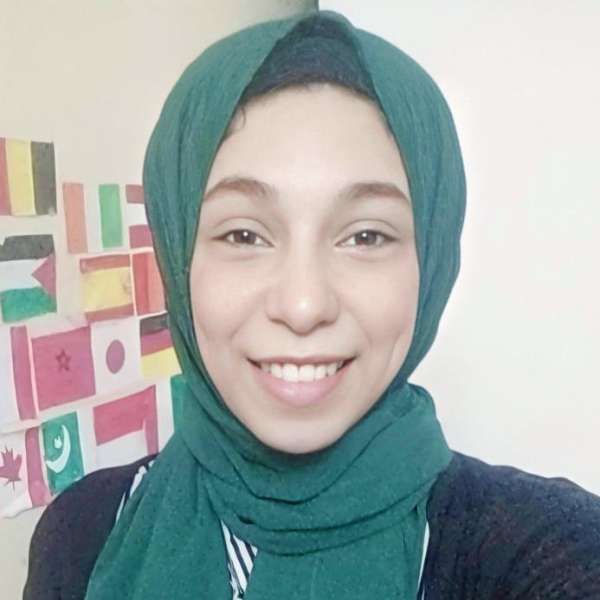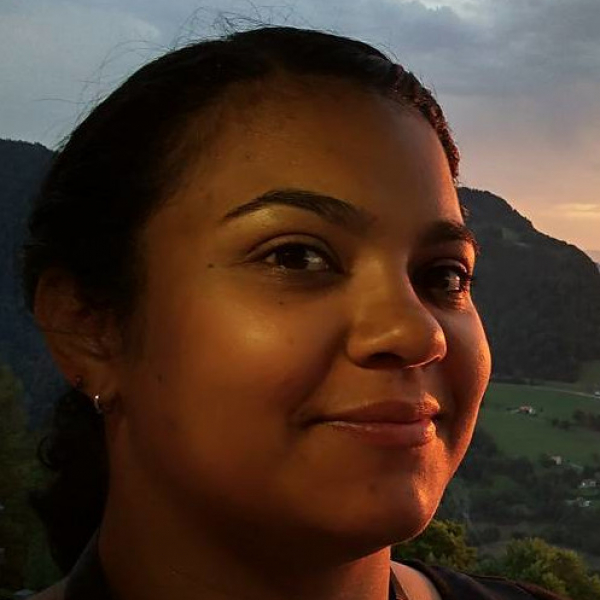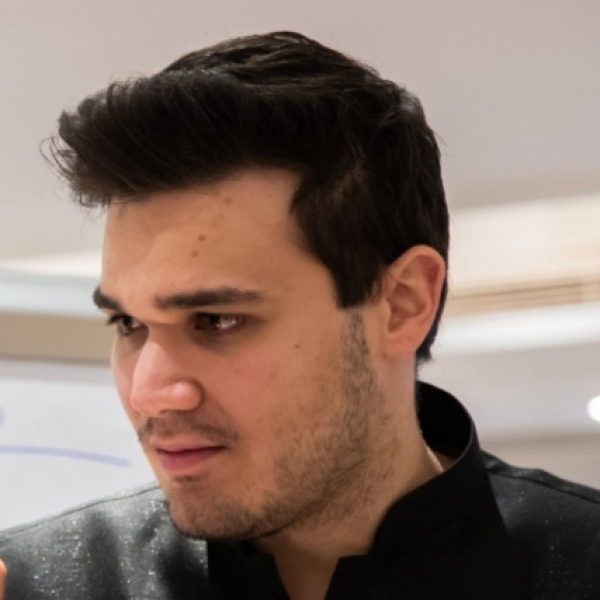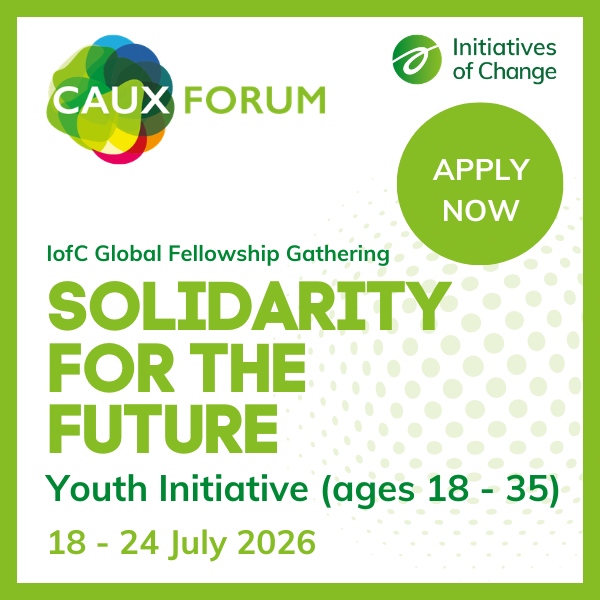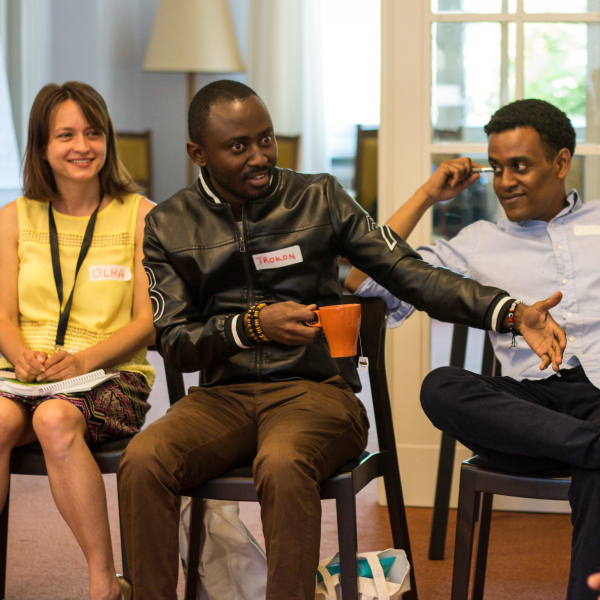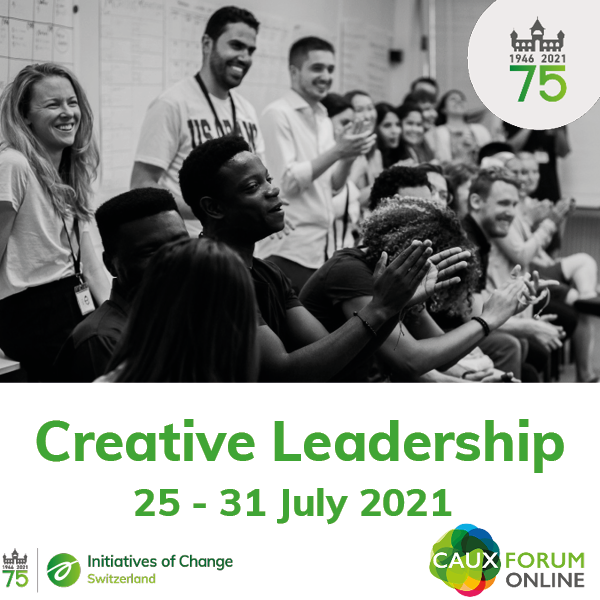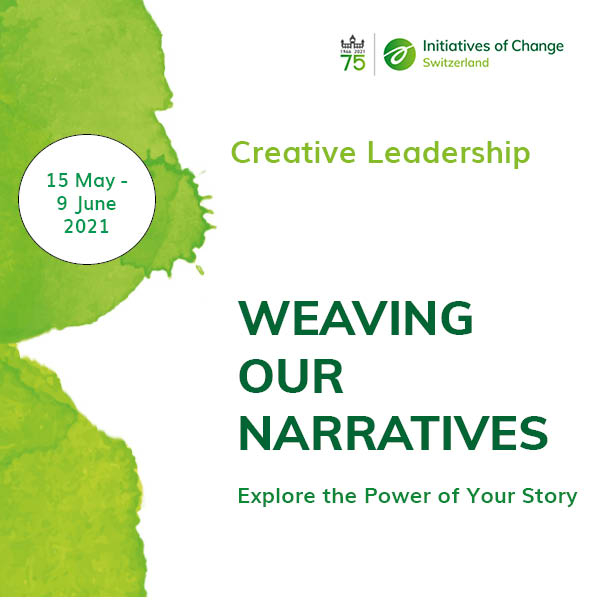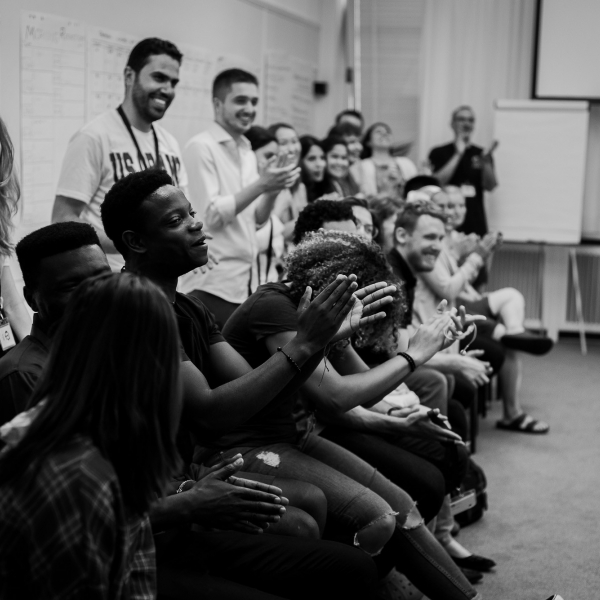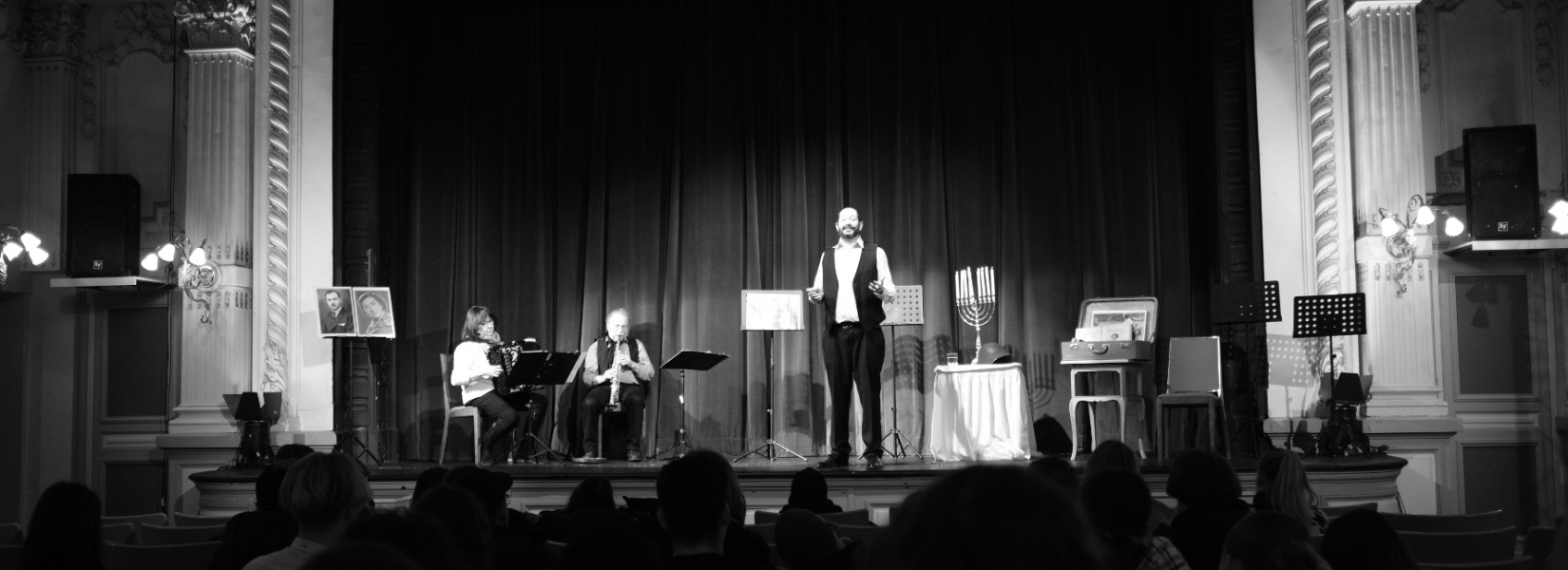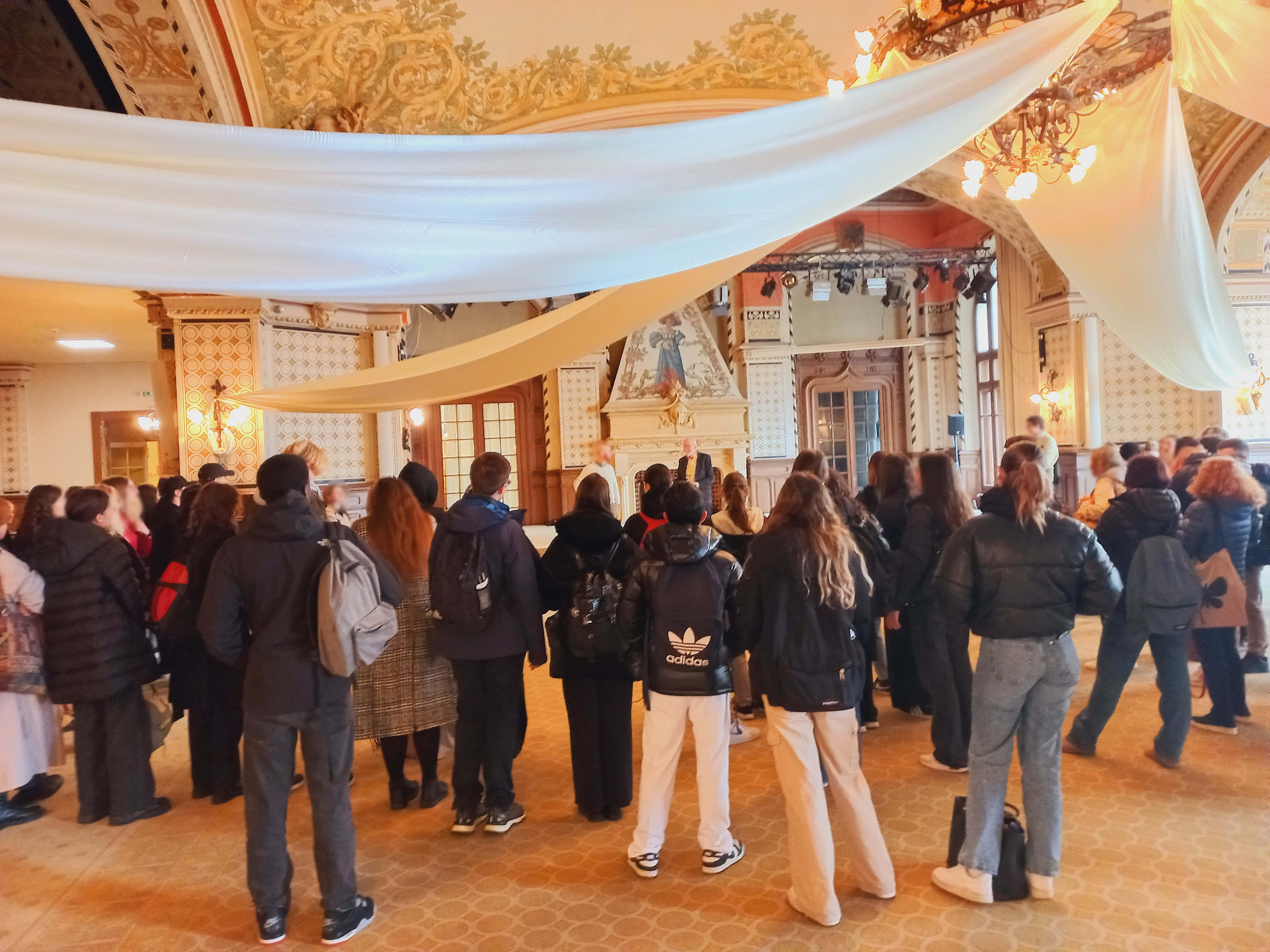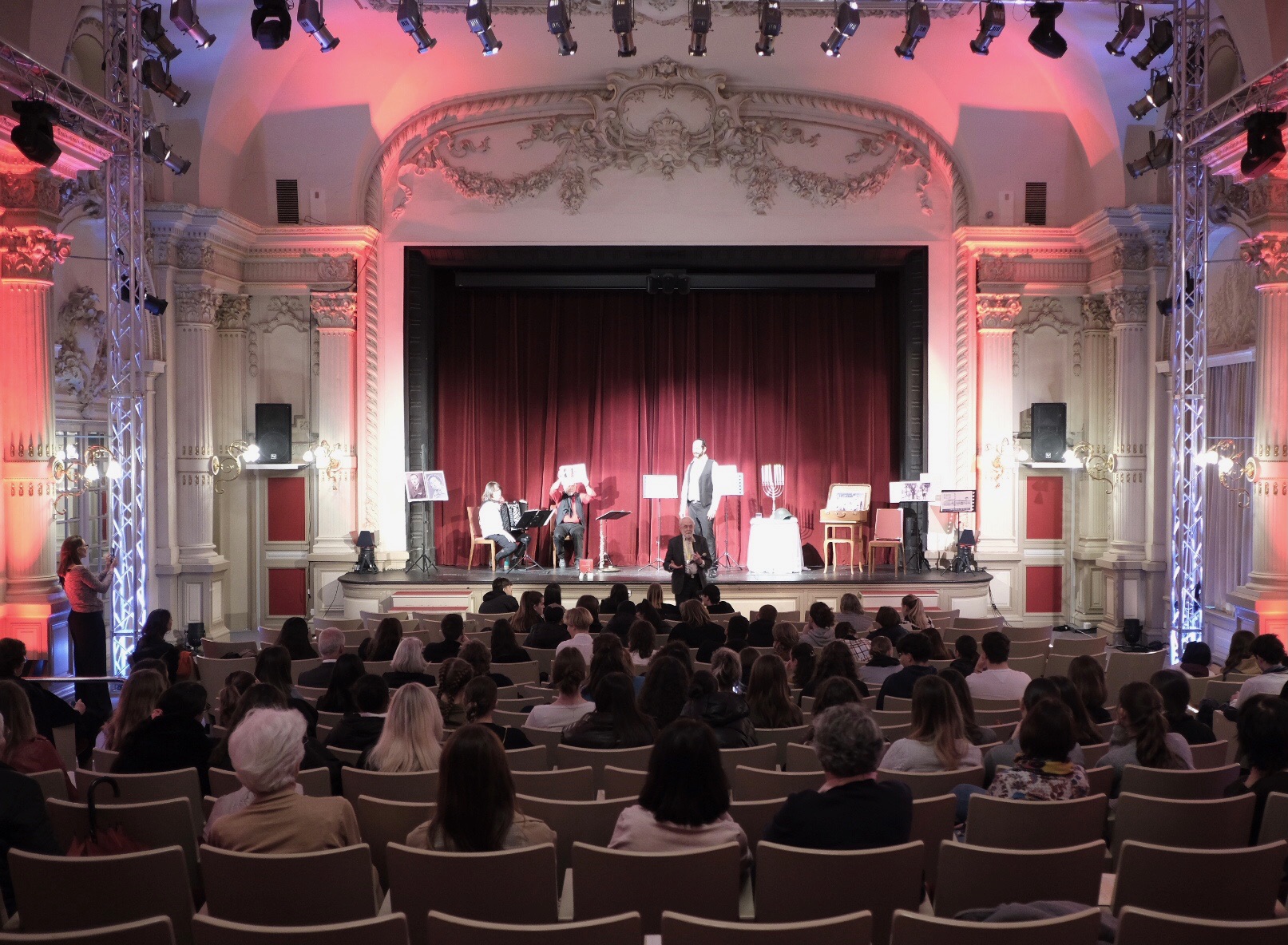Our Annual Report 2022 is now available!
21/06/2023
Our Annual Report for 2022 is now available! Discover the 2022 highlights and find out more about the Foundation's projects for the future.
You can also download the file here.
Ignacio Packer
Ignacio Packer was appointed as Executive Director of the Caux Initiatives of Change Foundation in May 2023. Until March 2023, he served as Executive Director of ICVA, the global consortium of humanitarian NGOs. ICVA is a global network of non-governmental organisations whose mission is to make humanitarian action more principled and effective by working collectively and independently to influence policy and practice.
A sense of peace
Impressions from the Emergent Future conference at Asia Plateau, India - Part 2
25/04/2023
'Ultimately I'm a human being and I believe in equity for all who are currently marginalised.' Morenike Onajobi (28) is a passionate advocate for change. She actively supports and engages in a range of humanitarian causes, including women's rights, prison reform and the progression and equity of diverse young people from low socio-economic backgrounds. With a London upbringing and Nigerian heritage, Morenike specialises in employment law and works as an HR Business Partner for FTI Consulting. She also serves as the Company Secretary of Intermission Youth, the charity that introduced her to IofC Switzerland in 2012.
Morenike has been a council member for IofC Switzerland since May 2020, following her work as a trainer with the Caux Peace and Leadership Programme. In January 2023 she participated in the conference Emergent Future: Rethinking our World Together at the Indian IofC centre in Asia Plateau.
It was unfortunate that I only recently discovered India, as it truly is a beautiful place. The Indian IofC centre Asia Plateau feels very special. There is a real sense of peace and tranquility when you reach a place like this. As you drive up the mountain, you arrive at this amazing place that has been nurtured and developed since the 1960s. I remember my first impression on arriving there was one of stepping into a peaceful garden.
I decided to take part in the conference Emergent Future: Rethinking our World together conference because I am someone who is forward-looking. It is always interesting to know what is coming, to know what is happening in the world, who is finding themselves, who is noticing this person becoming a gem, an ally, a leader.
I often think that as a community we tend to dwell on our past mistakes and overlook our accomplishments. But if we look forward to what an emerging future could be, we have time to scope and create a perfect utopian world for ourselves.
For me this was one of the reasons why organising a conference about an emergent future was so important. It's a topic that has been gaining momentum, with tangible goals that we can work towards. I believe that it is essential to have something in this world that we can look forward to or work towards.
Reflecting on my time at Asia Plateau, there are several moments which have left a lasting impression on me.
One of those moments was 'Family Time'. From the beginning we were assigned to a group. We met up daily during the conference and this was our 'family'. The family names were based on the names of trees planted in Asia Plateau, and my group was named ‘Subabul’.
We were all from different backgrounds and life experiences, with nothing in society that would naturally bring us together. I always love those moments when we find ourselves speaking, laughing or even crying (on some days) with people who the world perceives as vastly different from us, yet we are so similar at the same time.
I had an amazing family group. We had really honest and interesting conversations, we held up the mirror to one another in moments of extreme vulnerability, but there was also so much hope. We shared stories with each other and are still connected today.
One encounter which was particularly inspiring to me was meeting two women who came to sing for us. Their music was used to tell stories of women's empowerment - a topic that is particularly close to my heart - and they were simply fantastic.
India has a long history of the treatment of women that is often highlighted and spoken about. However we often forget or fail to acknowledge the powerful women who stood strong and fought for their rights. We definitely need to pay homage to these women that the two artists sang about. The event was truly inspiring because it put so many things into perspective for me.
Music is an amazing medium to transcend languages and barriers. Although the two women didn't sing in English, I felt as though I could understand their message through the emotion in their music. We often focus on how we are different from each other, but its moments like these that remind us how similar we are.
And those stories they told us! I felt so humbled and proud to be there to experience that.
Music also played an important role when we visited the local IofC-inspired organisation Grampari, just a short walk away from Asia Plateau. We saw how much the village has been influenced by Asia Plateau, especially during Covid and lockdown. We discovered some of the sustainability elements that they have been able to develop, such as teaching children sanitation rules. It was very moving to hear people tell their stories and see how far the village had come over the years.
I suppose that is why I chose to share a song with the community as they reminded me of my forgotten gift and gave me hope. I realized in that moment how important music is in bringing peace, in bringing comfort and hope. So, I sang ‘A Change is Going to Come’ because I just felt so touched and amazed.
If I compare the two IofC centres, the Caux Palace in Switzerland and Asia Plateau in India, there are definitely similarities. Firstly, both centres are reached by driving up a hill. There seems to be a thing about putting IofC ‘homes’ on the top of hills, thus providing a unique perspective of their communities that allows them to support, look out for, and belong to them, which is truly amazing. Another similarity is that of community. Asia Plateau is a local place for people very much in the heart of Panchgani, which is similar to Caux, located close to Geneva.
As the youngest person on the board of IofC Switzerland, I bring a different perspective and believe in finding new and innovative ways to engage a younger audience. I believe that youth are the future and we need to engage with them, create space for them and bring them on board. I first went to Caux as a young person in 2012 at the age of 17 where I served the community by cleaning dishes, supporting the housekeepers and welcoming new arrivals. Asia Plateau is very much the same.
I like how people from India have been drawn to it and how it has solidified itself in the local community. I think we can learn a lot from them, while still continuing our strong global outreach.
If I had to summarize my time in India with five words, I would say: inspiring, peaceful, chaotic, fun, and honest. India is what it is. And I’ll tell you what: it won’t be my last time. I will definitely be going back!
I always love those moments when we find ourselves speaking, laughing or even crying (on some days) with people who the world perceives as vastly different from us, yet we are so similar at the same time.
_________________________________________________________________________________________________________________________________________
Asia Plateau is the education centre for Initiatives of Change India. Since its inauguration, the centre has conducted more than 2,000 programmes on campus and offered a refuge for transformation and an incubator for inspired, collective and inclusive actions and personal and global change.
The conference Emergent Future: Rethinking our World Together reached out to social and thought leaders in an attempt to make sense of our ever-increasing complex world. It offered panel discussions and keynote speakers and provided space for questions, reflection and inspiration to seek direction for the future.
You would like to discover more impressions from the Emergent Future conference in Asia Plateau? Read Sebastian Hasse's inspiring story Where change can happen!
Olivier Homs
Having travelled in Africa and the Lebanon for various humanitarian projects, Olivier Homs is passionate about human relations. He loves sporting challenges and nature is omnipresent in his life. His profession as a gardener has led him to work in various fields, such as viticulture, landscape management and the maintenance of public and private gardens.
Where change can happen
Impressions from the Emergent Future conference at Asia Plateau, India - Part 1
19/04/2023
Have you ever travelled to a foreign country and realised that this has changed your life forever? In January 2023, Sebastian Hasse from Germany took part in Emergent Future: Rethinking our World Together (22 Jan - 1 Feb 2023) at the Indian IofC centre in Asia Plateau. His time there had a major impact on his understanding of Initiatives of Change.
Sebastian is the coordinator of the IofC Hub, a platform which offers activities and gatherings for the wider IofC team, and he also supports the IofC Switzerland team.
__________________________________________________________________________________________________________________________________________
It took me two flights and a sleepless night to get from Paris to Mumbai. By the time I arrived, I was so tired that I slept through most of the six-hour drive to the IofC centre, Asia Plateau, located 250 km south of Mumbai. I was even too tired to worry about the Indian way of driving and the many bumps on the road.
But as soon as I arrived, all was forgotten. Asia Plateau is located in the hills, 1,300 meters above sea level and surrounded by beautiful, lush gardens. I was fascinated by this green oasis, with monkeys in the trees, and felt immediately welcomed by the people running the centre.
On 28 January, the conference Emergent Future: Rethinking our World Together started and from the very beginning until the end the organisers delivered an amazing event, full of energy and surprises that made people forget the struggles of their daily lives.
We had a packed programme filled with inspiring sessions on peacebuilding and educational work mixed with sharing groups and amazing music performances.
We also had the opportunity to meet with the Grampari team, a programme of IofC India, which has managed to build a successful model of sustainable long-term development through behavioural change, watershed management, livelihood programmes and other innovative projects. Their work has transformed the economic and environmental conditions of the villages surrounding Asia Plateau and the IofC practice of listening to your inner voice when taking decisions is at the very core of their mission. So far, Grampari has impacted 158 villages and 30,000 people. I was impressed to see the impact that IofC and its grassroot work have made on the people living close by.
Even though I had been involved in IofC for several years before my trip to India, my time in Asia Plateau was the first time that I took part in what I would call the ‘quintessential IofC experience’ where inner change can really happen. You can feel it in the discussions at lunch or dinner where participants are either so enthusiastic that they cannot stop talking or are so overwhelmed by what they have experienced or heard that they suddenly become very quiet. I felt very inspired, met amazing new people and discovered new emerging personal callings.
I think it was the first time I truly understood the essence of what IofC is about.
I realised that at the end of the day, it all boils down to slowing down and to listening to what your inner voice is trying to tell you about when, where, and how to act. This may sound very easy on paper, but it requires training, like everything in life. If you want to deeply listen to others or to yourself, you need to practice it every day.
At the end of the conference I stayed on at the IofC centre for the second part of my journey. I was organising a team-building retreat for the IofC Hub team, who had also taken part in the Emergent Future conference.
Although we had planned the Hub retreat before we arrived in India, we realised that we had to change our programme and adapt to the ways of Asia Plateau. We decided to allocate more time to inspirational sessions and story-sharing and it turned out to be the right decision. I feel honoured to have heard so many life stories and experiences from my fellow team members and to have learnt from them.
Although organising the event required a lot of effort and focus on the different tasks, I believe that not many networks can create the amazing atmosphere I experienced with IofC in Asia Plateau.
My trip to India and the IofC centre in Asia Plateau was the experience of a lifetime. I am truly fascinated by this amazing country, of which I have seen so little so far. But, I promise to return one day.
At the end of the day, it all boils down to slowing down and to listening to what your inner voice is trying to tell you.
_________________________________________________________________________________________________________________________________________
Asia Plateau is the education centre for Initiatives of Change India. Since its inauguration, the centre has conducted more than 2,000 programmes on campus and offered a refuge for transformation and an incubator for inspired, collective and inclusive actions and personal and global change.
The conference Emergent Future: Rethinking our World Together reached out to social and thought leaders in an attempt to make sense of our ever-increasing complex world. It offered panel discussions and keynote speakers and provided space for questions, reflection and inspiration to seek direction for the future.
You would like to discover more impressions from the Emergent Future conference in Asia Plateau? Read Morenike Onajobi's inspiring story A sense of peace.
Something to sing about
A Creative Leadership story
07/04/2023
How can singing make a difference in people's lives? Pioneering Egyptian musician Dalia Younis was a guest speaker at the Creative Leadership conference in 2022 where she talked about how she uses singing to promote trust.
Dalia Younis trained as a doctor, works for an international development organization, cares for her autistic son – and somehow finds time for her great passion: using singing to build community. Her tools are singing circles, A Cappella (unaccompanied) singing and – controversially, as a hijab-wearing Muslim – singing Christian hymns in churches.
It all began in 2017, when she turned 30, got divorced and her son was diagnosed with autism. ‘I also had a long break from work. I found myself with a broken family, no steady income and new responsibilities as the mother of a differently-abled child. I needed something to resort to.’
As a teenager, Dalia had loved to sing: but she didn’t know how to start again. A friend suggested she give a performance for a few friends in downtown Cairo. Newly single, she chose Valentine’s Day and made it a singles’ night, with single-life-appropriate Arabic songs. Ninety people came.
This led to Dalia’s first singing circle, a concept she introduced to Egypt. Up to 60 participants sit in a large circle and Dalia facilitates singing games, drawing on principles of music therapy and psychodrama. ‘Sometimes I invent a game on the spot,’ she says. ‘Although in my work life I’m a planning freak, in a singing circle I find myself liberated to follow my heart.’
The programme has spread beyond Cairo and celebrated its fifth birthday last year: 65 singing circles in total. Some people come once; others repeatedly. ‘In Egypt we have a lack of safe spaces where people can be themselves without judgment or pressure,’ she explains. ‘You can use group singing to create a community which has the values that you want to introduce to society. People say it has changed them.’
You can use group singing to create a community which has the values that you want to introduce to society.
Through the circles, Dalia met kindred spirits who loved singing but whose jobs meant they could not commit to more demanding choirs. Together, they founded Klaxics, Egypt’s first A Cappella choir singing in Arabic. Their first video – featuring Dalia’s classical arrangement of a pop song – got four million views.
Klaxics has 10 to 14 members, ranging from teenagers to seniors. ‘We welcome everyone. You just have to pass an audition to make sure that you can follow a simple melody.’ She met her second husband through the ensemble.
To enable herself to compose the arrangements, Dalia has studied musical theory, online with the University of Edinburgh and in person in Lebanon. Last Christmas, the choir released an Arabic rendition of Once upon a December, a song from the animated film Anastasia. ‘We didn’t have any funding. But the choir said, “Let’s share the cost”. For the first time I felt it’s not my project, it’s our project.’
Dalia’s most controversial venture is her sacred music project. As a teenager, she loved the music of the Lebanese diva Fairouz, who is a Christian. She found in her sacred songs a quality which transcended religion: ‘a special way of putting your soul in the singing’.
In the summer of 2018, she approached a Catholic priest to ask if she could record herself singing a hymn to the Virgin Mary in his church in downtown Cairo. ‘He asked why. I said, because I love the hymn and I love the Virgin Mary, who is revered in both Islam and Christianity.’
Following a BBC report which suggested, wrongly, that she wanted to join the church choir, there was a backlash from conservative Egyptians. ‘But I also heard from people who said I was brave to do this. I’m not doing this as a religious act. I’m doing it as a way of building bridges.’
I’m not doing this as a religious act. I’m doing it as a way of building bridges.
Since then, she has performed in Arabic in many churches, including All Saints Cathedral in Cairo in 2019 and, in 2021, in St Patrick’s Cathedral in New York. ‘In St Patrick’s, tourists from all over the world were dazzled to see a woman in a hijab singing these well-known Christmas melodies in Arabic, a language which is stigmatized with terrorism.’
Her son, now aged eight, is largely non-verbal, and has ADHD as well as autism. Here, too, Dalia has ‘unorthodox’ views. ‘Some people say it’s such a blessing to have a child like this. But I feel that part of getting over the pain is to acknowledge it rather than try to manipulate it into something it’s not.’
She feels that the emphasis on high functioning, gifted autism can be unhelpful for mothers of children with special needs. ‘I see some mothers pushing their children in an attempt to find something at which they excel. If I can’t find a special talent in my child, would I stop loving him?’
She realizes that her education and her work have given her access to services and support that most Egyptian mothers don’t have. ‘I want to use my voice to speak out on issues regarding people with different abilities in Egypt.’
It was one of the fans of her Facebook page who told Dalia about Creative Leadership 2022. She was inspired and ‘amazed’ by what she heard and glad to showcase her work in front of people from all over the world. She hopes to continue her involvement when the conference comes off line.
Interested in Creative Leadership? Discover the full conference report 2022 or read Afghan soccer player Kawser Amine's inspiring story.
__________________________________________________________________________________________________________
Watch Dalia and her choir Klaxics at their participation at the World Choral Day 2022
- By Mary Lean
- Photos: with kind permission of Dalia Younis
- Video: World Choral Day/YouTube
Tina Clifton
Tina Clifton joined Caux Initiatives of Change as the Head of Communications in March 2023 and brings over 20 years of experience leading successful marketing and communications programmes and implementing customer experience initiatives for international industrial companies.
Echoes of the Past
A captivating performance exploring Jewish World War II history for students at the Caux Palace
04/04/2023
More than 120 high-school students and teachers from the Lausanne region were treated to a powerful afternoon of local history at the Caux Palace at the end of March. From the magnificent main hall the audience were given a short introduction to the Palace and the Initiatives of Change movement, before moving into the Caux theatre. There, Geneva lawyer Marc Isserles, in collaboration with the group LEBEDIK, presented the remarkable story of his grandparents’ escape from Budapest during the Shoah in 1944, and their subsequent arrival in Caux, alongside 1,600 other Jewish refugees.
During the performance Marc Isserles showed a photo of his grandparents in Montreux, being re-united with their two daughters, alongside the Hungarian woman who had hidden the children as part of her family in the countryside until the end of the war, at the risk of her own life. At the end of the show, there were gasps from the audience when Isserles presented his mother, one of the two girls in the photo with his grandparents.
Also in the audience were the IofC Switzerland foundation’s staff, along with friends from the village and region, including some of the Ukrainian refugees who found shelter in Caux from a new war – disturbing contemporary echoes of the past. Some of these refugees, as well as some of the Ukrainian students, followed a written translation of the performance in their native language. The audience also included the Archivist of the Commune of Montreux and the head of the Montreux library.
The event grew out of one teacher’s passion for Caux. Nicolas Rutz had brought several classes to Caux for visits, in the framework of studying the development of tourism and tourist infrastructures, including guided tours of the Caux Palace. When the students started studying World War II and the Holocaust, the idea naturally developed to bring them all to Caux to experience Marc Isserles’ story-telling.
In his one-man show, titled We must save the children, Isserles sings, dances and tells stories, accompanied by two Klezmer musicians, Michel Borzykoswki and Sylvie Bossi. This performance was something of a test run, with the team hoping to offer it to other local schools in the future.
When you see this, it’s not just a list. Behind the names, there are faces, families, hopes and despair. Human beings.
- Marc Isserles
By Andrew Stallybrass / Photo top: Nicolas Rutz
Etienne Jacques
A French national, Etienne Jacques trained in the traditional hotel industry at the Ecole Hôtelière de Nice. He has a diploma in cooking and catering and looks back on more than thirty years of international experience at the head of atypical hotel establishments. A man of the field, he is quick to adapt and has already successfully managed several high-altitude hotels and restaurants in the Swiss canton Valais. Pragmatic and a fan of digitalisation, he knows how to make proposals to make a business more efficient, but also more human.
